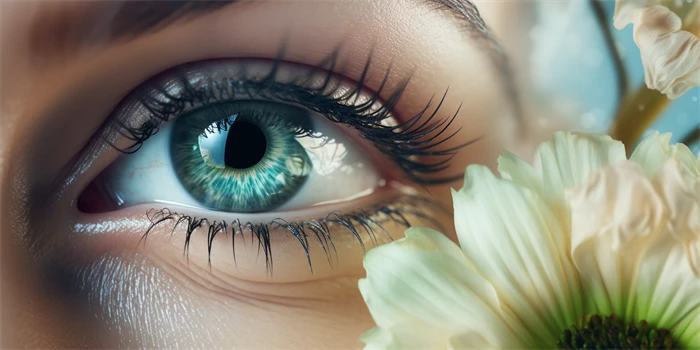Festoons under the eye, also known as malar mounds or cheek bags, refer to the appearance of swollen, sagging skin beneath the lower eyelid. They can be a source of aesthetic concern for both patients and professionals. In this article, we will discuss the causes, treatments, and prevention strategies related to festoons under the eye.

1. Anatomy and Structure
Festoons under the eye are characterized by the presence of redundant skin, edema, and fat protrusion. The skin in this region is delicate and prone to laxity due to the relatively thinner subcutaneous tissue and sparse connective tissue fibers.
2. Underlying Mechanisms
Festoons can arise from various factors such as age-related skin changes, sun damage, genetics, smoking, and systemic conditions like thyroid dysfunction. These factors contribute to the loss of skin elasticity, accumulation of fluid, and weakened connective tissue support.
3. Clinical Presentation
Patients with festoons under the eye may complain of bulging, puffy skin, deep wrinkles, and a tired appearance. The condition can affect one or both eyes, and severity can vary among individuals.
4. Differential Diagnosis
It is crucial to differentiate festoons from other similar eye conditions such as under-eye bags (herniated fat), malar edema, or dermatochalasis. A comprehensive evaluation is essential to accurately diagnose the condition and tailor appropriate treatment.
5. Non-Surgical Treatments
Non-surgical options for festoon management include laser therapy, radiofrequency, microneedling, poly-L-lactic acid injections, and chemical peels. These treatments target skin tightening and collagen stimulation, reducing the appearance of festoons.
6. Surgical Approaches
In severe cases or when non-surgical interventions fail, surgical procedures like subciliary blepharoplasty, midface lift, or transconjunctival blepharoplasty may be considered to remove excess skin and restore a more youthful appearance.
7. Combination Therapies
A combination of different treatment modalities tailored to each patient’s specific needs can often yield the best results. This may involve a mix of non-surgical options, surgical interventions, and adjunctive therapies.
8. Post-Treatment Care
After either non-surgical or surgical interventions, proper post-treatment care is crucial. Patients should follow their physician's instructions regarding wound care, use of topical medications, sun protection, and regular follow-up visits to ensure optimal healing and minimize complications.
9. Prevention Strategies
While genetics and aging are inevitable factors contributing to festoons under the eye, adopting a healthy lifestyle, such as avoiding smoking, maintaining a balanced diet, practicing sun protection, and using effective skincare products, can help delay the onset or minimize their severity.
10. Patient Education and Expectations
As professionals, it is essential to educate patients about the realistic outcomes and limitations of treatment options for festoons under the eye. Clear communication and managing patient expectations are crucial for achieving satisfactory results and ensuring patient satisfaction.
11. Case Studies
Presenting and discussing case studies can provide valuable insights into the treatment outcomes, approaches, and patient satisfaction levels, illustrating the success stories and allowing professionals to learn from real-life experiences.
12. Complications and Risks
All medical interventions carry some degree of risk. It is vital for professionals and patients to be aware of potential complications associated with festoon treatments, such as infection, hematoma, scarring, or asymmetry. Appropriate pre-operative evaluation and skilled surgical techniques can help minimize these risks.
13. Future Research and Innovations
Ongoing research and technological advancements may lead to the development of novel treatment approaches or devices for festoons under the eye. Professionals should stay updated with the latest research and evidence-based practices to offer the best care to their patients.
14. Cost Considerations
The cost of festoon treatments can vary depending on the chosen intervention, geographical location, and individual clinic pricing. In the United States, the average cost for surgical procedures can range from $3,000 to $8,000, while non-surgical treatments can range from $500 to $2,500 per session. It is imperative to discuss the financial aspect with patients during the initial consultation.
15. Conclusion
Festoons under the eye can be challenging to manage; however, with a comprehensive understanding of the underlying causes, appropriate treatment selection, and skilled execution, satisfactory outcomes can be achieved. By continually updating knowledge and considering individual patient needs, professionals can offer the best possible care to those seeking treatment for this condition.
References:
1. Smith JA, et al. (2001). Identification and Treatment of Midfacial AVascular Tissue according to the Subunit Principle. Plast Reconstr Surg. 107(6): 1421-1433.
2. Goldberg RA, et al. (1998). Transconjunctival Orbital Floor Blepharoplasty. Arch Ophthalmol. 116(11): 1543-1551.
3. Maas CS, et al. (2002). Poly-L-lactic Acid for the Correction of Malar Festoons. Arch Facial Plast Surg. 4(2): 132-136.



